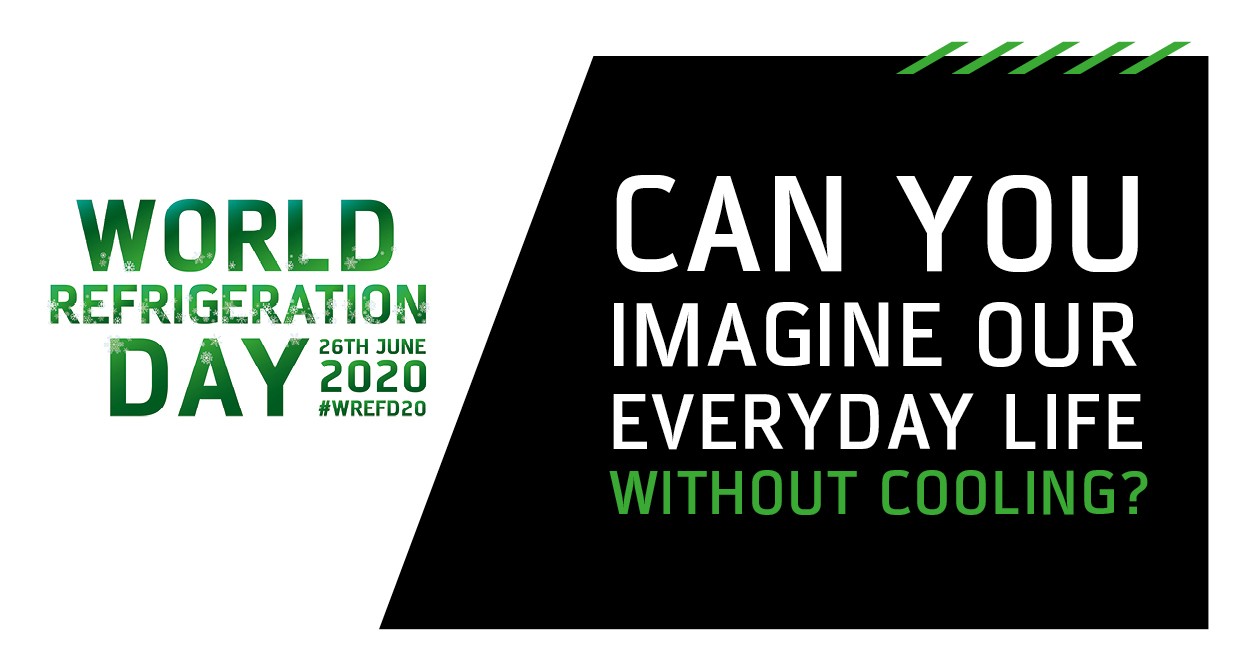
Nothing works without cooling – three reasons why refrigeration is essential
At data centres it cools the servers and protects valuable data for the modern information society. At hospitals it ensures that modern medications and blood supplies are stored at the right temperature. It’s impossible to imagine our society without refrigeration.
Hospitals and pharmacies ensure that our health system works. As the corona virus has revealed, they both play a crucial role in our medical care – and are essential facilities. But they can’t operate without reliable cooling. Refrigeration and air conditioning are indispensable for the supply of fresh foods at supermarkets, the work carried out at data centres, the proper storage of blood supplies at hospitals and the production of medications. Our modern world just wouldn’t work without fail-safe refrigeration and air conditioning. But they rarely receive the acknowledgement they deserve. World Refrigeration Day on 26 June is the perfect occasion to recognise the importance of refrigeration and air conditioning.
Reason 1: Proper storage of medicine and blood supplies
In hospitals, every second counts. Lots of smaller parts work together like clockwork to ensure seamless care. Medicines need to be properly stored as well, as they’re highly sensitive. Some medications call for refrigeration, whilst others need to be stored frozen. Many vaccinations, including medications for tetanus and hepatitis A and B, require continuous cooling, or could otherwise become ineffective or even dangerous.
When it comes to the development of new medications and vaccinations, high-precision cooling is often a must. Once a new medication has overcome all the research obstacles, the work with refrigeration is far from over. Exact temperatures for production, storage and transport are additional challenges which can only be mastered with the aid of modern cooling.
Not even blood supplies can be stored without refrigeration. At temperatures between two and six degrees Celsius, they can be kept for up to 42 days. In addition to whole blood, there are other blood products such as platelets and plasma which can save patients’ lives. But these, too, always have to be stored at the right temperature. 4.7 million litres of blood products are administered every year in Germany.
Reason 2: Supplying society with fresh foods
From healthy fruit and vegetables to fresh dairy products and frozen meals, the range of food available at the supermarket is enormous. Such a large selection of edible foods wouldn’t be possible without intact cold chains. Even the shortest interruption can spoil the food.
From harvest and transport to storage on supermarket shelves, only continuous cooling throughout can ensure that many foods remain edible. Refrigeration thus goes a long way in securing our supply.
Reason 3: Essential cooling at data centres
There’s good reason why they say, ‘keep a cool head’. A ‘cooling off’ also gives us the necessary energy to be efficient. It’s much the same for data centres, which are essentially a company’s digital brains, operate around the clock and require reliable, efficient cooling. Sensors continuously measure the temperature in server rooms, as computers can only deliver optimal service at consistently cool temperatures.
Data analysis in mere seconds requires well-functioning servers around the world. These data are, for example, shared with various institutions and form the basis for social decisions.
World Refrigeration Day
So, you see, refrigeration plays an important role in ensuring a well-functioning society. For World Refrigeration Day on 26 June, BITZER would like to give refrigeration a suitable platform and the attention it deserves. Follow us and World Refrigeration Day on social media to obtain further information about refrigeration as an essential service.